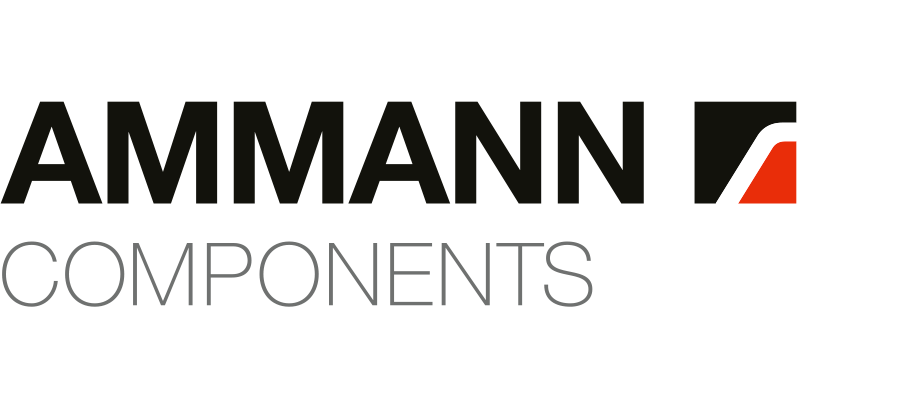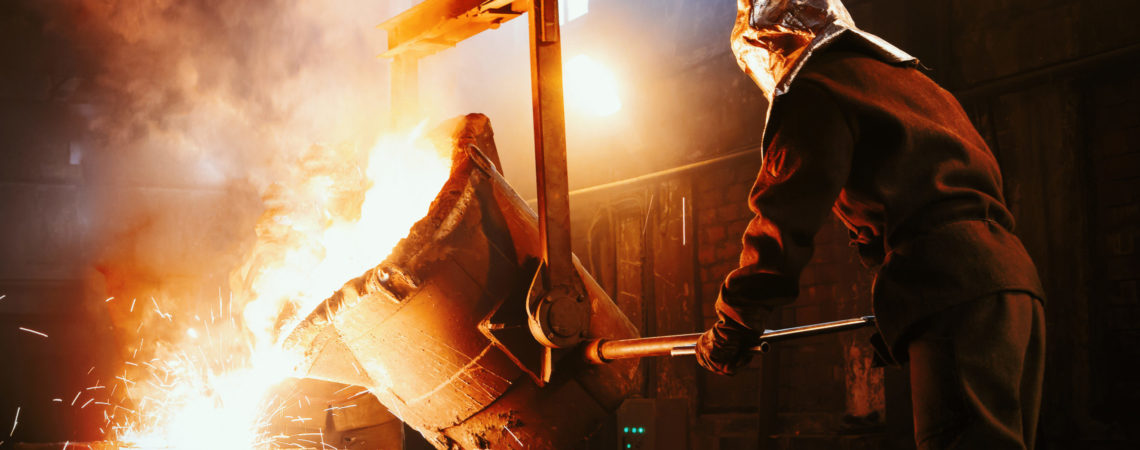Castings are the backbone of many industries – from commercial vehicle axles to high-strength machine components. Ammann Components combines state-of-the-art casting technologies with decades of experience and supplies products made of gray cast iron, ductile iron, steel casting, aluminum casting, investment casting, sand casting and die casting in small to large series. The cast blanks undergo extensive in-house machining and testing and, if required, external coating before being delivered to you as ready-to-install modules.
Request your project-specific offer now.
What Defines Modern Casting?
Digitally networked molding systems with or without core inserts, as well as AI-based process data analysis, form the foundation of the foundry technology we use. We employ traditional sand molds, automated permanent mold casting systems, die casting cells, or investment casting using the lost-wax or water-glass process to economically produce both delicate cast structures and heavy housings weighing several tons.
Series size, material, and design determine which casting technology we select – always with a focus on cost, durability, dimensional accuracy, and compliance with all customer requirements.
From Gray Cast Iron to Aluminum to High-Temperature Alloys – Materials Overview
- Vibration damping: Gray cast iron reduces vibrations in heavy machine housings
- High mechanical load: Ductile iron or ADI materials are suitable for steering knuckles and crankshafts
- Weight savings: Aluminum alloys for sand, permanent mold, or die casting reduce weight in e-mobility and vehicle applications
- Corrosion resistance: Nickel-based alloys withstand aggressive media over the long term
- Temperature resistance: SiMo iron or nickel-based steel casting withstands extreme heat in exhaust manifolds or furnace components
- Wear resistance: Chilled cast iron provides excellent resistance against abrasive wear in grinding discs, ore crushers, or conveyor systems
Brochures & Technical Information on Casting Materials:
AMMANN Components has worked for decades with selected and innovative raw part partners, enabling the delivery of ready-to-install components up to approximately 1.5 meters in size. We process the following materials with associated heat treatments:
- Gray cast iron (GG) EN-GJL-100 to EN-GJL-350
Brochure “Gray Cast Iron with Lamellar Graphite” by bdguss (PDF / 3.5 MB) - Ductile iron (GGG) EN-GJS-350 to EN-GJS-900
Brochure “Ductile Cast Iron” by bdguss (PDF / 14 MB) - Special grade ductile iron for high loads or extreme temperatures: ADI, Ni-Resist, EN-GJS-SiMo, and more.
- Steel castings low to high alloyed (e.g. quenched and tempered steels, stainless steels, etc.)
Brochure “Steel Casting” by bdguss (PDF / 18.5 MB) - Investment casting (steel, aluminum, nickel, copper alloys)
Brochure “Investment Casting” by bdguss (PDF / 6 MB) - Sand / Permanent mold casting (aluminum)
Brochure “Sand and Permanent Mold Casting” by bdguss (PDF / 3.5 MB) - Die casting (aluminum)
Brochure “Die Casting” by bdguss (PDF / 8.5 MB)
Depending on batch size, vertical or horizontal molding systems with manually or fully automated core placement are used. For special applications, we also offer high-grade smoothed or finely finished surfaces (e.g., for coated components in cleanroom or food production environments).
All brochures in this section:
© BDG – German Foundry Industry Association.
More information on casting: www.guss.de
Process Reliability in Series Production
- Comprehensive data recording in real time
- Automated core inserts for precise mold accuracy
- CT X-ray inspections for non-destructive testing of micro-porosity
Request a free quality assurance report for your reference part.
Four Key Advantages of Our Casting Technologies
Weight, Rigidity, Cost Efficiency
Lightweight design through hollow-core technology, rigidity through rib optimization, cost benefits thanks to automated molding systems – our casting combines seemingly opposite goals.
Quality Assurance and Machinery
Our cast products are produced exclusively on state-of-the-art and reliable casting systems. Stable processes combined with a certified quality assurance system guarantee efficient, productive and reliable quality.
Scalable Series Production
Whether 100, 1,000 or 100,000 units per year – modular mold systems, multi-cavity models, and automated casting cells ensure stable cycle times and short delivery times.
Finishing from a Single Source
Integrated CNC machining completes the casting. Coatings such as powder coating, wet painting or heat treatment according to EN standards round off the process.
Submit your CAD data – feedback within 48 hours.
Industries & Applications
Commercial Vehicle Components
Brake components, clutch or wheel drive housings – manufactured on vertical or horizontal molding systems and delivered directly to OEM assembly lines.
Mechanical Engineering & Energy
Pump housings, turbine blades or large structural parts made of steel casting up to 1.5 m in length leave our molds with minimal machining allowance – ready for subsequent welding, machining, or assembly.
Precision Drives & E-Mobility
Aluminum cast housings for inverters or transmissions combine lightweight construction with heat dissipation and are completed by gasket installation in final assembly.
Our Services at a Glance
- Procurement management: Supplier audits, FAI, single sourcing
- Engineering support: Material consulting, process selection, rapid prototyping
- Quality assurance: MT, PT, VT or CT X-ray, SPC monitoring
- Logistics solutions: Consignment stock, just-in-sequence delivery, reusable packaging
- Lifecycle service: Spare parts management, series extension, re-casting
Contact us now – and optimize your asset management.
Contact Us
Ammann Components, Oberstrasse 20, CH-8274 Tägerwilen
Phone: +41 (0)71 666 87 87
Email: office@ammann-components.com
Use the contact form – we will start your casting project.
FAQ – Frequently Asked Questions
What is the minimum order quantity for series production?
Economic production starts at around 1,000 pieces per year. Larger volumes further reduce unit costs. Once drawings, alloy, and annual demand are available, our sales team will provide a binding quotation within a short time.
Does Ammann Components also offer prototypes?
Yes. Prototype production is possible in casting processes or from solid material using machining. Functional parts are available after around four to six weeks, including material certificates and dimensional and microstructure reports.
How is quality assurance carried out?
Each batch is tested with spectral analysis. On request, CT scanning, magnetic particle inspection and SPC monitoring can be provided. Reports are archived digitally for ten years to ensure complete traceability from melt to delivery.
What are the delivery times for sand casting?
First samples are typically available after four to six months, with series delivery starting about 12 weeks after approval. Lead times can be optimized if required.
Can castings be delivered fully machined?
Yes. With our 3- to 5-axis machining centers and lathes, parts are finished directly after casting. We supply complete, ready-to-install castings – including measurement in climate-controlled rooms.

